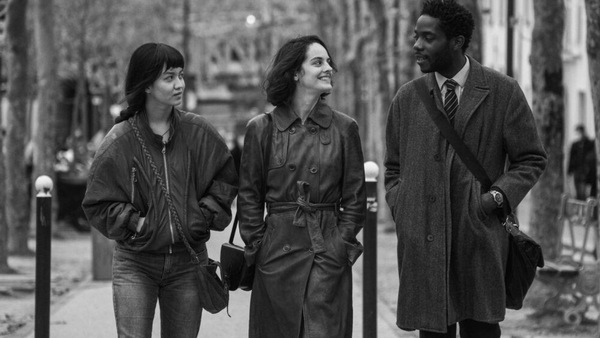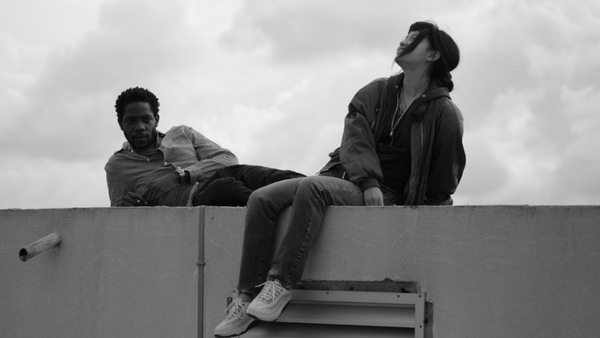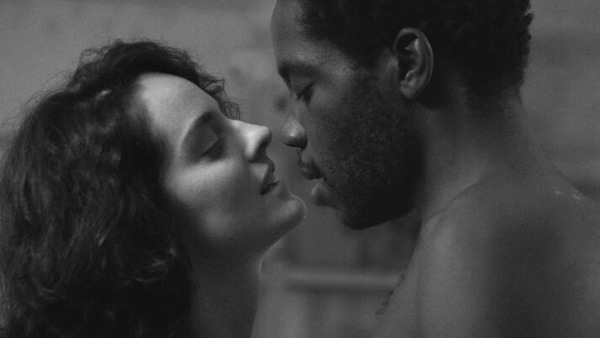For a change, a film about Paris that isn’t looking like a travel guide
A riveting anthology of love, sex and fleeting attraction, Jacques Audiard’s Paris, 13th District deliberately avoids the French capital’s world-famous tourist spots

Last Updated: 10.55 PM, Jul 10, 2023
There is a reason lately everyone’s been talking about the two brilliant films currently streaming on MUBI - The Worst Person in the World, from Joachim Trier’s Oslo Trilogy, and Jacques Audiard’s Paris, 13th District. Both have impressed the jury at the Cannes Film Festival with their refreshing storyline and some splendid performances. The two coming-of-age dramas are spot on about the contemporary codes of relationships and lovemaking. Rather than focussing on the incredible vistas of Oslo and Paris where these stories are set, the narratives redirect the audiences’ attention towards the young folk that inhabit these picturesque cities - how they navigate love, desire and the fluidity of relationships.
More so in the case of Paris, 13th District - which is an unapologetically messy anthology of dating sites, quick hookups, webcam sex and the fear of commitment. Although loosely episodic, the riveting tale of fleeting romances in the ‘city of love’ doesn’t get overwhelming at any point. You can’t help but commend how the 70-year-old filmmaker - who is known for his crime dramas A Prophet and The Beat That My Heart Skipped - astutely interprets the beating heart of modern-day love, without becoming preachy. Instead of expressing displeasure about ‘this generation!’, the French writer-director shows empathy, understanding and a sense of curiosity. How technology drives the dynamics of passion in today’s world is not portrayed as a negative trait. Instead, the movie spotlights those who are visibly unconnected amid the herd. Its honest portrayal of broken, self-absorbed relationships is a hyper-contemporary tribute to the modern world’s dependency on the digital economy of intimacy. The transcendental yet piercing melancholy shown in the plot is probably something we all secretly suffer, but are too proud to confess.

The 105-minute film is shot in black-and-white frames, possibly to ward off the threat of it being considered one among those that double as a travel diary of Paris. It ain’t your tourist brochure! This also isn’t a story told only from the male perspective. Acclaimed filmmakers Céline Sciamma (best known for Petite Maman and Portrait of a Lady on Fire) and Léa Mysius (whose latest movie The Five Devils was recently screened at Cannes) collaborating with Jacques meant that the feature didn’t miss the necessary female gaze.
No points for guessing that 13th arrondissement in Paris constitutes the setting for plot, which is inspired by Adrian Tomine’s short comic stories Amber Sweet, Killing and Dying and Hawaiian Getaway. Just how old buildings and modern high-rises jostle for space in the city’s multicultural neighbourhood, the lives of three adults entwined and often overlapped as they try to unravel the mysteries of their feelings and desire for each other.
Émilie Wong (Lucie Zhang) - a call centre executive - meets Camille Germain (Makita Samba) - a faculty member - and quickly become passionate sex partners sharing an apartment owned by Émilie’s grandmother, who is receiving treatment for Alzheimer’s disease at a nearby hospital. Along the way, Émilie falls in love with Camille, but he is not looking for anything other than physical intimacy in the relationship. “We’re just roommates, not a couple,” he declares every now and then, either in words or through his actions. Things between them get worse when Camille brings his new partner Stéphanie (Oceane Cairaty) to the apartment, unannounced and without an ounce of decency. Émilie, in the meantime, is mindlessly indulging in partners matched by dating apps’ algorithms.

Eventually, they all fall apart and Camille finds his new love interest in Nora Ligier (Noémie Merlant) who came to work with him for a while at a friend’s real estate agency, after she was compelled to drop out of law school following an embarrassing incident where she was mistaken for a porn star named Amber Sweet (Jehnny Beth). Things complicate a little more when Nora and Amber become companions of friendship, love and healing.
Do these people share a strong bond with their respective families? It’s difficult to say. Émilie cares for her ailing grandmother, but not enough to attend to her. She even prefers to keep her mother, who sometimes calls her from Taiwan, at a distance. Camille, on the other hand, is taken aback to learn that his father could be in a sexual relation with another woman after the death of his mother. Meanwhile, Nora - who had opted to pursue academics after a probable broken marriage - is actually struggling to cope with her own vulnerability almost every day. Sex, cursory attraction, search for love, platitudes and all that define fluid relationships dot the enduring and often tragic personal lives of the three characters.
The film, however, doesn’t budge a bit from what it wants to convey. The sloppy relationships don’t spill over into the style of storytelling. The episodes are intersecting, but not necessarily disconcerted. Movies like Paris, 13th District definitely signal a new era of filmmaking, where plots and characters are more in-sync with reality than being dogmatic. The directness with which the film addresses sexual relationships is what makes it truly outstanding. And yes, avoiding the tourist spots in the ‘city of love’ was a good call.
*Reema Gowalla is an arts and culture journalist, who mostly writes about theatre and independent cinema, and sometimes also delves into culinary heritage.

